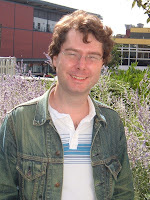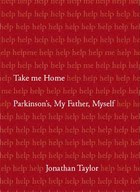[Interview_3] Jonathan Taylor

Jonathan Taylor's memoir, Take Me Home: Parkinson’s, My Father, Myself (Granta, 2007) has been described as a “a beautifully constructed and often profound piece of work” which “stands as a fine testimonial to man whose life was a mystery.” Taylor has written two academic books, Science and Omniscience in Nineteenth-Century Literature (Sussex Academic Press, 2007) and Mastery and Slavery in Victorian Writing (Palgrave-Macmillan, 2003) and has co-edited the collection of essays, Figures of Heresy: Radical Theology in English and American Writing, 1800-2000 (Sussex Academic Press, 2005) with Dr. Andrew Dix. In this, the last of a two-part interview, Taylor speaks about Take Me Home , how it got published and how has been received by readers. Who is your target audience? I would say my target audience has various layers. Obviously, people who have experienced Parkinson's disease or dementia in their family (or in themselves) are central to who the book is for. The



